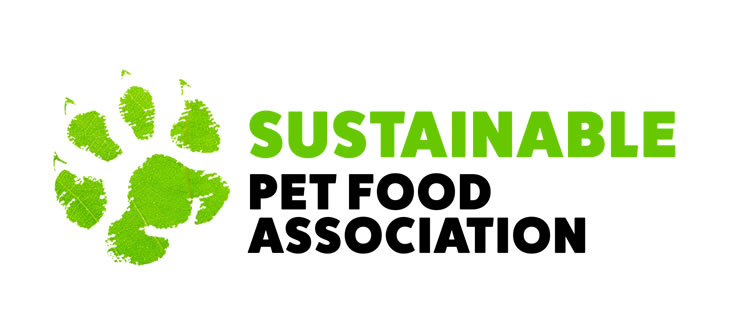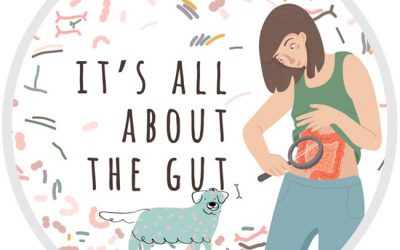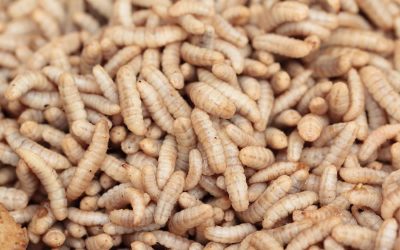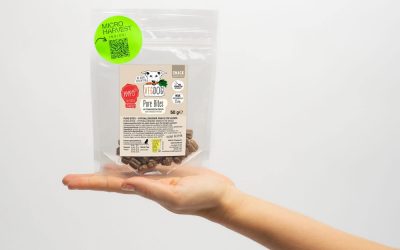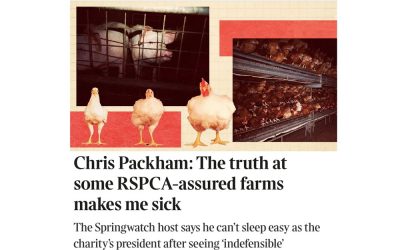Prof Alex German holds the position of Royal Canin Professor of Small Animal Medicine at the University of Liverpool. He is well known for his studies on obesity prevention in dogs and cats in the UK.
Together with Prof Richard Barrett-Jolley, they published a study in May 2024 that has increased confidence in the apparent benefits of plant-based diets for dogs.
The study reanalysed data within a major published 2022 study of 2,536 dogs – the largest published study within this field. That study concluded that the healthiest and least hazardous dog foods were nutritionally-sound vegan diets.
Owner opinions of health were included in this study, which may not always be reliable. For example, owners committed to feeding vegan or meat-based diets might sometimes fail to recognise or report subsequent health problems and they would hold definite bias towards the diet they had chosen when answering questions.
Prof German’s new research focused specifically on subjective dog owner opinions of health, in contrast to the original study which examined seven general indicators of illness, including more objective data such as the prevalence of medication use, therapeutic diet use, and the frequency of veterinary visits.
The original study also analysed the reported assessments of vets concerning dog health, as well as the prevalence of 22 of the most common health disorders in dogs. It also considered prior studies documenting hazards (pathogens and nutritional imbalances) associated with raw meat diets.
The new study by Prof German used additional statistical methods, including machine learning, to analyse owner opinions of health. It found these were minimally affected when vegan diets were fed.
A fresh row has erupted over the merits of vegan pet diets after new analysis argued there was only a “minimal” link between the approach and animals’ health.
‘Negligible’
But the new paper argued that diet choice was a “negligible” factor in canine health, with age, frequency of veterinary visits and receiving medication found to be the most important indicators instead.
That conclusion is based on the development of two new variables based on whether either any health problem or a significant illness was reported in individual cases.
Prof Alex German, said the suggestion that vegan diets were healthier than alternatives was “not accurate”, because the original study’s reliance on survey data meant that it could only indicate “a possible correlation and not causality”.
‘Nuanced insights’
His co-author, Richard Barrett-Jolley, argued that the current approach provided “more nuanced insights” on the subject than the earlier analysis.
Prof Barrett-Jolley said: “Crucially, we cannot draw a firm conclusion as to what diet type is actually best for dogs; this was never possible given the nature of the original dataset and study design.
“However, we can conclude that variables other than dog diet are more strongly associated with owner opinions about the health of their dog.”
Swift response
But the paper’s publication on 15 May prompted a swift response, which branded the new research as a scientific attempt to “undermine” vegan diets and suggested it had backfired.
Prof Andrew Knight, the lead author of the original study, said: “I was relieved to see confirmation that feeding vegan diets had minimal impact on owner opinions about health. This increases my confidence in the reliability of the owner opinions we analysed.
“The large number of health parameters we studied, and the very large number of dogs included, provide a high degree of confidence in our results.”
In response, Prof German described the confirmation claim as “surprising”.
‘Ecological grounds’
Prof Knight also argued that what he described as “substantial dietary change” was now essential on ecological grounds, following a paper published last year that calculated that more than 450 million more people could be fed through food energy savings if all the world’s dogs were put on to a vegan diet.
Canine Microbiome Study Significant Findings
Dogs have adapted genetically to digesting starches and that explains why they do so well on a complete plant-based diet
Studies claim positivity with alternative pet diets
Many owners willing to consider alternative pet diets, studies claim with a high proportion of cat and dog owners now prepared to explore alternative, more sustainable diet options
Plant-based vs Insect-based dog food
Insect Protein-Based Diets as Potential Risk of Allergy in Dogs, and Higher Cost
Avian Flu Pandemic Risk from Raw Feeding
The APHA (Animal Plant and Health Agency.gov.uk) sends anyone interested in environmental matters, emails about looming threats. As a vet, this is what I have received recently in my email inbox - In my inbox yesterday 11th November - An Avian Influenza Prevention...
Raw dog and cat food fuelling spread of antibiotic-resistant bacteria
The very real and always present danger of this latest study yet again finding antibiotic-resistant bacteria in raw commercial cat foods!
UK Petfoods MUST Keep Up!
Using animal byproducts in meat and fish-based pet foods is NOT sustainable!
Cats dying after eating Avian-Influenza-contaminated raw pet food!
Does vegan cat food provide the solution?
Fermented Protein Pet Food – the Future?
Is precision fermentation our future way to feed not only our pets, but ourselves too? Yes it most certainly is!
Could our dogs or cats trigger an avian influenza pandemic?
As our memories of the last COVID 19 disappear, the potential for another pandemic looms and pets could play a role in transmitting it
Using microbial protein for the very first time in dog treats!
This first-of-its-kind protein is derived from bacteria that have been consumed by humans for centuries in foods such as kimchi, kefir, and sauerkraut
BVA says it is possible to feed dogs plant-based
The British Veterinary Association (BVA) has ended its opposition to (nutritionally-sound) vegan diets for dogs
The truth about ‘RSPCA Assured’ farms
The footage obtained from these farms, including distressing images of decomposing pigs, dying chicks, and salmon with missing eyes, is simply indefensible
